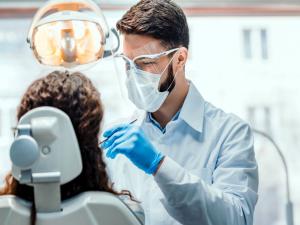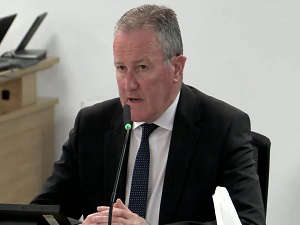
By Q Radio News
There is concern that people with oral cancers are not being diagnosed early enough because of Coronavirus restrictions.
Dental appointments are still mainly limited to only urgent and emergency treatments.
Dentists have reported seeing only a fifth of the normal level of patients, partially down to a huge backlog from the first wave when nearly all treatments were suspended due to risk from aerosols generated during procedures.
Richard Graham from the NI Dental Practice Committee says it's quite concerning:
Richard Graham speaking to Q Radio
""We may be missing out on some oral cancers. The hospital service has been saying they're getting fewer referrals and those referrals are coming at a later time. Like any cancer, the early it's picked up, the more successful treatment is.
"The referrals are coming in when the patient has noticed something wrong - that's later than when we would pick it up."
"We're seeing about a fifth of the patients we would have seen previously. We're trying to deal with backlogs of people who had broken teeth and infections before this, so it's still urgent and emergency treatment pretty much across the board at the minute."
"If somebody has an unexplained swelling in their mouth, unexplained tingling sensation or an ulcer that hasn't healed in a few weeks, then they need to contact their dentist."
"They really need to explain those to the dentists and they will almost see you as an emergency."
"If you don't have the routine appointments then someone who doesn't know there's something wrong won't be attending."
"People don't realise what dentists do normally in a check up - we're not just looking at the teeth, we're looking at the whole mouth. We look at the soft tissue, the tongue, the cheeks so we can pick up things at a very early stage."
"We are missing out on all those opportunistic check ups where people find things they didn't feel wrong."
"How you get over that I don't know as there's only so much capacity and it does seem sensible to prioritise urgent emergency treatment at the moment. I don't have an answer to that."


 Government choosing weapons over public services – Michelle O’Neill
Government choosing weapons over public services – Michelle O’Neill
 Devolved regions ‘politely entertained but not listened to’ during pandemic
Devolved regions ‘politely entertained but not listened to’ during pandemic
 Man dies following fire at fold in Co Down
Man dies following fire at fold in Co Down
 Forensic accountants to examine projected NI Water overspend, Kimmins announces
Forensic accountants to examine projected NI Water overspend, Kimmins announces
 Nine Northern Ireland schools targeted with threatening email thought to be hoax
Nine Northern Ireland schools targeted with threatening email thought to be hoax